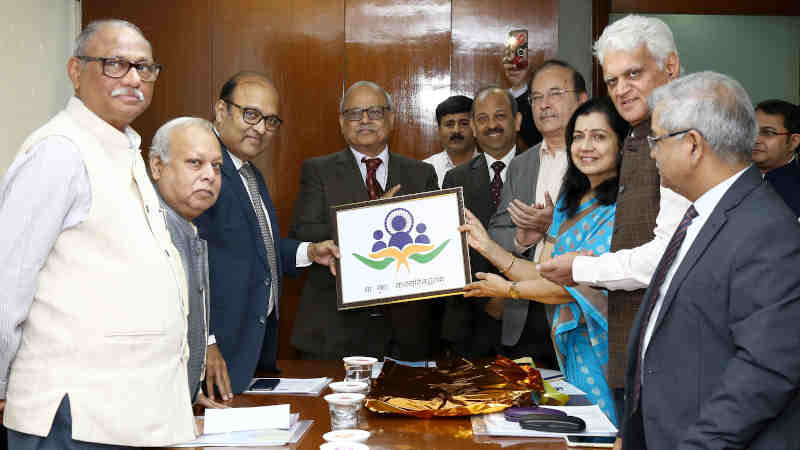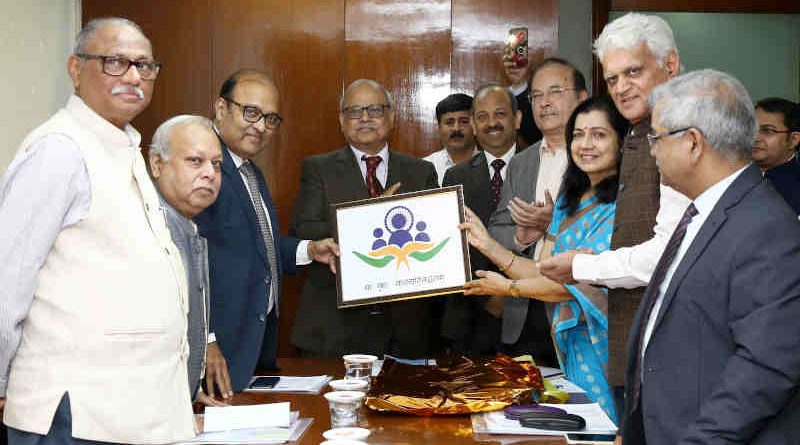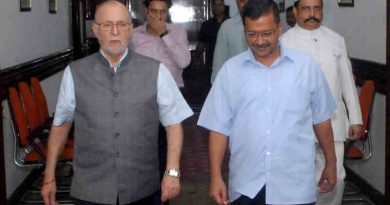How Carelessness of Lokpal Causing Corruption in India

How Carelessness of Lokpal Causing Corruption in India
I was shocked to know that the Lokpal office did not even read my letter and in response sent me an utterly obnoxious email that had nothing to do with my letter about the corruption research project.
By Rakesh Raman
Although all the anti-corruption agencies in India are full of corrupt and complicit officials, the Lokpal – which is the top department responsible to curb corruption – is causing more corruption with its negligence and inaction.
The office of Lokpal is operating with extremely careless functionaries and obsolete systems that have failed to control bureaucratic and political corruption in the country. Rather, corruption has increased manifold after the formation of the Lokpal authority in 2019.
The negligence of the Lokpal office is illustrated with a recent interaction that I had with it. As a journalist and anti-corruption campaigner, I have launched a research project on corruption in India. In order to take inputs from the Lokpal office for this project, I sent a concept note with the following letter to Lokpal on December 20, 2021 with the request to respond by January 3, 2022.
Editorial Inputs for Research Project on Corruption in India
To
Justice Pinaki Chandra Ghose December 20, 2021
Chairman
Anti-Corruption Institution Lokpal of India
Plot No: 6, Vasant Kunj Institutional Area, Phase II
New Delhi 110 070
Dear Sir,
I am a national award-winning journalist and founder of the humanitarian organization RMN Foundation in New Delhi. As an anti-corruption activist, I publish The Integrity Bulletin news magazine, which covers local and international corruption news and issues. I also run “Clean House” anti-corruption service to report about crime and corruption in Delhi’s group housing societies where millions of people suffer because of extreme corruption and lawlessness.
As I have planned to compile a comprehensive research report on corruption in India, I need your response on the following queries to compile the report.
1. How does Lokpal define corruption?
2. What process does Lokpal follow to receive, investigate, and resolve corruption complaints?
3. How many corruption complaints did Lokpal receive and resolve since its formation in March 2019?
4. How many convictions (including imprisonment) of culprits did Lokpal achieve in the corruption cases it handled since March 2019?
5. Does Lokpal have a technology-based online website to accept complaints and allow complainants to track and monitor their complaints to know the progress of the case? If yes, what is the website address? If no, why not?
6. How does Lokpal treat corruption cases – such as the alleged Rafale scam – which are in the public domain but have not been thoroughly investigated?
7. How does Lokpal educate its staff on the evolving corruption concepts so that they could handle, investigate, and prosecute corruption cases efficiently?
8. You can add any other point from your side to explain the performance of your office.
You may please send me your response on the above queries on or before January 3, 2022. A concept note on the project is given below for your reference.
RESPONSE FROM LOKPAL
However, I was shocked to know that the Lokpal office did not even read the above letter and in response to this letter sent me an utterly obnoxious email that had nothing to do with my letter about the corruption research project.
As a journalist and anti-corruption activist, I keep sending corruption complaints to various authorities of India. I have experienced that Lokpal, the Central Vigilance Commission (CVC), and other anti-corruption departments have created standard letter templates with which they respond to the complainants to discard their corruption complaints.
With these casual letters, they pose all sorts of clerical hurdles to dissuade the complainants instead of catching and punishing the corrupt officials. In response to the letter that I sent to collect inputs from Lokpal for my corruption research project, a Lokpal official named Rajeev Ranjan sent an email to me on January 3, 2022 with the following message:
Sir/Madam,
Please refer to your e-mail dated 20.12.2021.
1. As per Section 2(e) of the Lokpal and Lokayuktas Act 2013 ‘Complaint’ means a complaint, made in such form as may be prescribed, alleging that a public servant has committed an offence punishable under the Prevention of Corruption Act, 1988 (49 of 1988). ‘Form’ for complaint has now been notified on 02.03.2020. It is available on the website of Lokpal of India i.e. http://lokpal.gov.in with Lokpal (Complaint) Rules 2020. Guidelines for filling the complaint are also available on the website.
2. After scrutiny of your complaint, it was found that it was not as per prescribed format of the complaint, notified vide Lokpal (Complaint) Rules 2020, on 02.03.2020. You may send your complaint, if any, afresh as per these rules. You may also refer to Section 14 of the Lokpal and Lokayuktas Act 2013 which defines the jurisdiction of the Lokpal.
3. The Complaint should be addressed to ‘Lokpal of India’ and should be sent to following address:
Lokpal of India,
Plot No-6, Phase II, Institutional Area,
Vasant Kunj, New Delhi-110 070.
On the envelope it should be clearly written “Complaint under the Lokpal and Lokayuktas Act 2013”.
Thanks & Regards
You can click here to read the pdf file of the email from the Lokpal official to me. With this copy-paste standard response, the Lokpal official kept telling me about some complaint. But it was not a complaint. Rather, it was a request to take editorial inputs for my corruption research project.
With this recklessness, however, the Lokpal office admitted that it does not even read the complaints and rejects them arbitrarily. As a result, the bureaucrats and politicians in the government are committing corruption crimes with impunity.
Since Lokpal is a weak authority, the corrupt officials often ignore Lokpal and continue their corrupt acts. In these circumstances, it is advisable to close and lock the Lokpal office and save huge public money that is being spent on it. [ You can click here to read a bureaucratic corruption complaint that I sent on December 26, 2021 to report about a citywide corruption racket in Delhi. But no action has been taken on it. ]
I sent a similar letter on December 28, 2021 to collect editorial inputs for the corruption research project from the Central Vigilance Commission (CVC) of India with the request to respond by January 10, 2022. [ You can click here to read the letter. ]
Meanwhile, a 2021 report released by the U.S. Department of State has revealed that rampant corruption is happening at all levels of government in India. The report – which also includes human rights violations in India – adds that the law provides criminal penalties for corruption by government officials, but most government officials frequently engage in corrupt practices with impunity. There were numerous reports of government corruption during the past year, the U.S. report says.
In addition to the U.S. State Department report, there are multiple global surveys which reveal that corruption is increasing rapidly in all parts of India. The U.S. report adds that corruption happens at different levels including the payment of bribes to expedite services, such as police protection, school admission, water supply, and government assistance.
As a result of bureaucratic and political corruption, the people of India are suffering under unprecedented inflation, pollution, hunger, unemployment, human rights violations, injustice, and extreme misery.
By Rakesh Raman, who is a national award-winning journalist and social activist. He is the founder of a humanitarian organization RMN Foundation which is working in diverse areas to help the disadvantaged and distressed people in the society. He also runs “Clean House” anti-corruption service to report about crime and corruption happening in Delhi’s cooperative group housing societies (CGHS).



![Children demonstrating in the streets of New Delhi so that the Indian government should protect them from dust pollution, noise pollution, and air pollution of extended FAR construction activity in occupied housing societies. Photo and Campaign by Rakesh Raman [ Click the photo to know the details. ]](https://www.ramanmedianetwork.com/wp-content/uploads/2017/04/dwkpol1-390x205.jpg)

